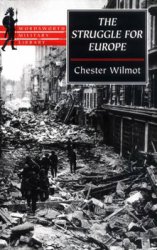By Oswyn Murray
The first edition of this work came out in 1996, the second in 2004; it is a great pleasure to welcome its appearance in a third edition. Each time Charles Freeman has revised large sections of the work to take account of recent discoveries and new ideas, so that his book remains the best and most up-to-date survey of the history of the entire ancient Mediterranean and Middle Eastern world.
As I said in the prefaces to previous editions, Charles Freeman has tried to give a narrative account of the main events within each period, but also to highlight the developments in cultural and social history, and to show something of the evidence on which his judgements are based. He has indicated where the evidence is uncertain, or where his interpretation may be controversial; but he has not avoided the responsibility of making decisions about the evidence in order to present a clear account. The aim of all of us who struggle to write in that most difficult of historical genres, the introduction to the study of a period, must always be to combine the current state of information with the excitement of new discoveries and encouragement to study the subject further. History aims at producing narratives and explanations, but it is the methods by which these aims are achieved that constitute the most interesting aspect of being a historian; and making historians is at least as important as writing history. For history is a creative activity that must be renewed in each generation: there will never be a fixed and final narrative, partly because our evidence is incomplete and growing all the time, and partly because our explanations of events and the ways they interconnect reflect our own interpretation of our present world, and so are always changing. As the philosopher and ancient historian R. G. Collingwood insisted, it is not the facts that are interesting in history, but the questions and their answers—and these can never be fixed.
There is an intrinsic merit in the wide sweep of Freeman’s book that makes it stand out among its competitors. He has consulted the experts in each area of the ancient world: although he makes up his own mind and judiciously steers between the various hypotheses with which experts tend to play for the sake of argument, he is always in touch with the latest thinking in each area. And therefore, just as Fernand Braudel did a generation ago with his work on the Mediterranean and on world history, he reminds us all, professionals and amateurs, of the importance of the wider perspective. The largest school for the study of ancient western history is no longer situated in Europe or North America, but at Nankai University, Tianjin in the People’s Republic of China. As Mediterranean and Near Eastern history find their place in world history, and as the Far East begins to confront the history of the West, more than ever before Charles Freeman’s synthesis of specialist researches is needed to point the way forward for the next generation.




 World History
World History









